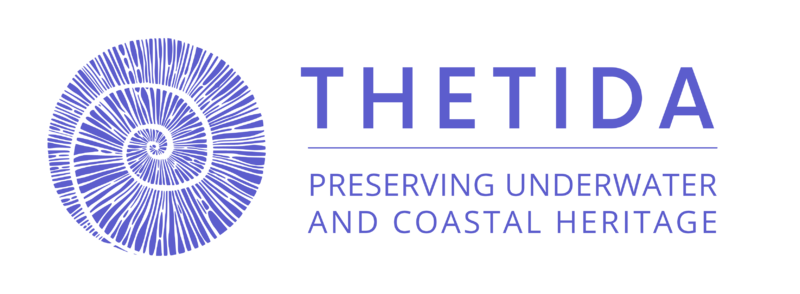Manage cookies
Cookie Settings
Cookies necessary for the correct operation of the site are always enabled.
Other cookies are configurable.
Other cookies are configurable.

THETIDA
Project overview
Resilience Guard GmbH is delighted to be part of the THETIDA Consortium. THETIDA is a Horizon Europe project aspiring to safeguard and protect coastal and underwater cultural heritage from the effects of climate change and natural hazards. Our main task is to develop a powerful engine that will facilitate risk and resilience assessment of coastal and underwater cultural heritage sites that will be incorporated into the THETIDA ecosystem.
Resilience Guard GmbH is delighted to be part of the THETIDA Consortium. THETIDA is a Horizon Europe project aspiring to safeguard and protect coastal and underwater cultural heritage from the effects of climate change and natural hazards. Our main task is to develop a powerful engine that will facilitate risk and resilience assessment of coastal and underwater cultural heritage sites that will be incorporated into the THETIDA ecosystem.

Funding
The project has received funding from Horizon Europe under grant agreement 101095253.
Project description
The 3-year THETIDA project, “Technologies and methods for improved resilience and sustainable preservation of underwater and coastal cultural heritage to cope with climate change, natural hazards and environmental pollution” (start date May 2023) aims to safeguard and protect Europe’s coastal and underwater cultural heritage from the effects of climate change, natural hazards and environmental pollution in a holistic manner. THETIDA project achieves this goal through the development of a preventive conservation strategy that includes monitoring, risk preparedness and management for underwater and coastal cultural heritage sites. The project aims to identify and ward off additional threats and promote adaptation, reconstruction and other post-disruption strategies to restore normal conditions to the cultural heritage areas, as well as long-term strategic approaches to adapt to climate change and to yield policy tools for economic resilience. An interdisciplinary team of researchers, experts and practitioners will develop, test and validate an integrated multiple heritage risk assessment and protection system with evidence-based monitoring frameworks, innovative tools and instruments and through participatory processes (Citizens’ Science and Living Labs).
The THETIDA results will be tested and validated in 7 pilot sites covering rural, coastal and maritime cultural landscapes and underwater heritage:
Project goals
The THETIDA project aims to achieve the following Objectives (Obj):
Obj1 – Contribute to safeguarding and protecting Europe’s coastal and underwater cultural heritage from the effects of climate change and natural hazards by exploiting cutting-edge monitoring technologies for addressing multi-hazard risk understanding, better preparedness, faster, adapted and efficient response.
Obj2 – Promote, test and demonstrate innovative and sustainable modelling tools and a decision support system to protect cultural heritage and cultural landscapes from climate change, disaster risks and pollutants, as well as to respond efficiently to those risks in case of emergency.
Obj3 – Actively engage diverse community groups, stakeholders and participants in participatory and inclusive data acquisition, co-creation and co-design processes through citizen science and participatory Living Lab methodologies. The aim is to identify the values of maritime heritage, understand the risks, monitor the changes and document the impacts of climate change and natural hazards on the maritime heritage, and to collaboratively develop sustainable preservation and adaptation strategies.
Obj4 – Produce a detailed concept of how all types of remote sensing, including a variety of satellite, aerial and underwater sensors can be used optimally for routine monitoring of cultural heritage sites and surrounding areas, as well as post-event response and damage mapping.
Obj5 – Produce novel methodologies for climate change, natural hazard and pollution effect monitoring in coastal and marine areas with multi-type remote sensing sensors methods and techniques.
Obj6 – Produce a smart buoy prototype capable of microclimate and pollution monitoring on the sea surface and underwater.
Obj7 – Produce an AUV prototype equipped with navigation and communication systems, Side Scan sonars and/or subsea LIDARs, multispectral and hyperspectral cameras capable of mapping the seabed.
Our input
Our role includes providing the risk assessment engine that is capable of quantifying risk and resilience for coastal and underwater cultural heritage sites/assets. Along these lines, our in-house risk engine that was developed during previous research (e.g., HARMONIA and HYPERION projects) will be extended to be applicable to coastal and underwater cultural heritage and to be interfaced within the THETIDA ecosystem. We will also participate actively in the organization and implementation of the project's pilot demonstrations and we will develop of the socioeconomic model that allows assessing the socioeconomic impact of various hazards for the community.
Find out more
More detailed information and news regarding the THETIDA project can be found on the project's website: https://thetida.eu/
The project has received funding from Horizon Europe under grant agreement 101095253.
Project description
The 3-year THETIDA project, “Technologies and methods for improved resilience and sustainable preservation of underwater and coastal cultural heritage to cope with climate change, natural hazards and environmental pollution” (start date May 2023) aims to safeguard and protect Europe’s coastal and underwater cultural heritage from the effects of climate change, natural hazards and environmental pollution in a holistic manner. THETIDA project achieves this goal through the development of a preventive conservation strategy that includes monitoring, risk preparedness and management for underwater and coastal cultural heritage sites. The project aims to identify and ward off additional threats and promote adaptation, reconstruction and other post-disruption strategies to restore normal conditions to the cultural heritage areas, as well as long-term strategic approaches to adapt to climate change and to yield policy tools for economic resilience. An interdisciplinary team of researchers, experts and practitioners will develop, test and validate an integrated multiple heritage risk assessment and protection system with evidence-based monitoring frameworks, innovative tools and instruments and through participatory processes (Citizens’ Science and Living Labs).
The THETIDA results will be tested and validated in 7 pilot sites covering rural, coastal and maritime cultural landscapes and underwater heritage:
- Lake Ijssel, Netherlands
- Svalbard, Norway
- Algavre, Portugal
- Gallinara, Italy
- La Spezia, Italy
- Paralimni, Cyprus
- Mykonos, Greece
Project goals
The THETIDA project aims to achieve the following Objectives (Obj):
Obj1 – Contribute to safeguarding and protecting Europe’s coastal and underwater cultural heritage from the effects of climate change and natural hazards by exploiting cutting-edge monitoring technologies for addressing multi-hazard risk understanding, better preparedness, faster, adapted and efficient response.
Obj2 – Promote, test and demonstrate innovative and sustainable modelling tools and a decision support system to protect cultural heritage and cultural landscapes from climate change, disaster risks and pollutants, as well as to respond efficiently to those risks in case of emergency.
Obj3 – Actively engage diverse community groups, stakeholders and participants in participatory and inclusive data acquisition, co-creation and co-design processes through citizen science and participatory Living Lab methodologies. The aim is to identify the values of maritime heritage, understand the risks, monitor the changes and document the impacts of climate change and natural hazards on the maritime heritage, and to collaboratively develop sustainable preservation and adaptation strategies.
Obj4 – Produce a detailed concept of how all types of remote sensing, including a variety of satellite, aerial and underwater sensors can be used optimally for routine monitoring of cultural heritage sites and surrounding areas, as well as post-event response and damage mapping.
Obj5 – Produce novel methodologies for climate change, natural hazard and pollution effect monitoring in coastal and marine areas with multi-type remote sensing sensors methods and techniques.
Obj6 – Produce a smart buoy prototype capable of microclimate and pollution monitoring on the sea surface and underwater.
Obj7 – Produce an AUV prototype equipped with navigation and communication systems, Side Scan sonars and/or subsea LIDARs, multispectral and hyperspectral cameras capable of mapping the seabed.
Our input
Our role includes providing the risk assessment engine that is capable of quantifying risk and resilience for coastal and underwater cultural heritage sites/assets. Along these lines, our in-house risk engine that was developed during previous research (e.g., HARMONIA and HYPERION projects) will be extended to be applicable to coastal and underwater cultural heritage and to be interfaced within the THETIDA ecosystem. We will also participate actively in the organization and implementation of the project's pilot demonstrations and we will develop of the socioeconomic model that allows assessing the socioeconomic impact of various hazards for the community.
Find out more
More detailed information and news regarding the THETIDA project can be found on the project's website: https://thetida.eu/

Contact us to discuss how we could help your organisation.
